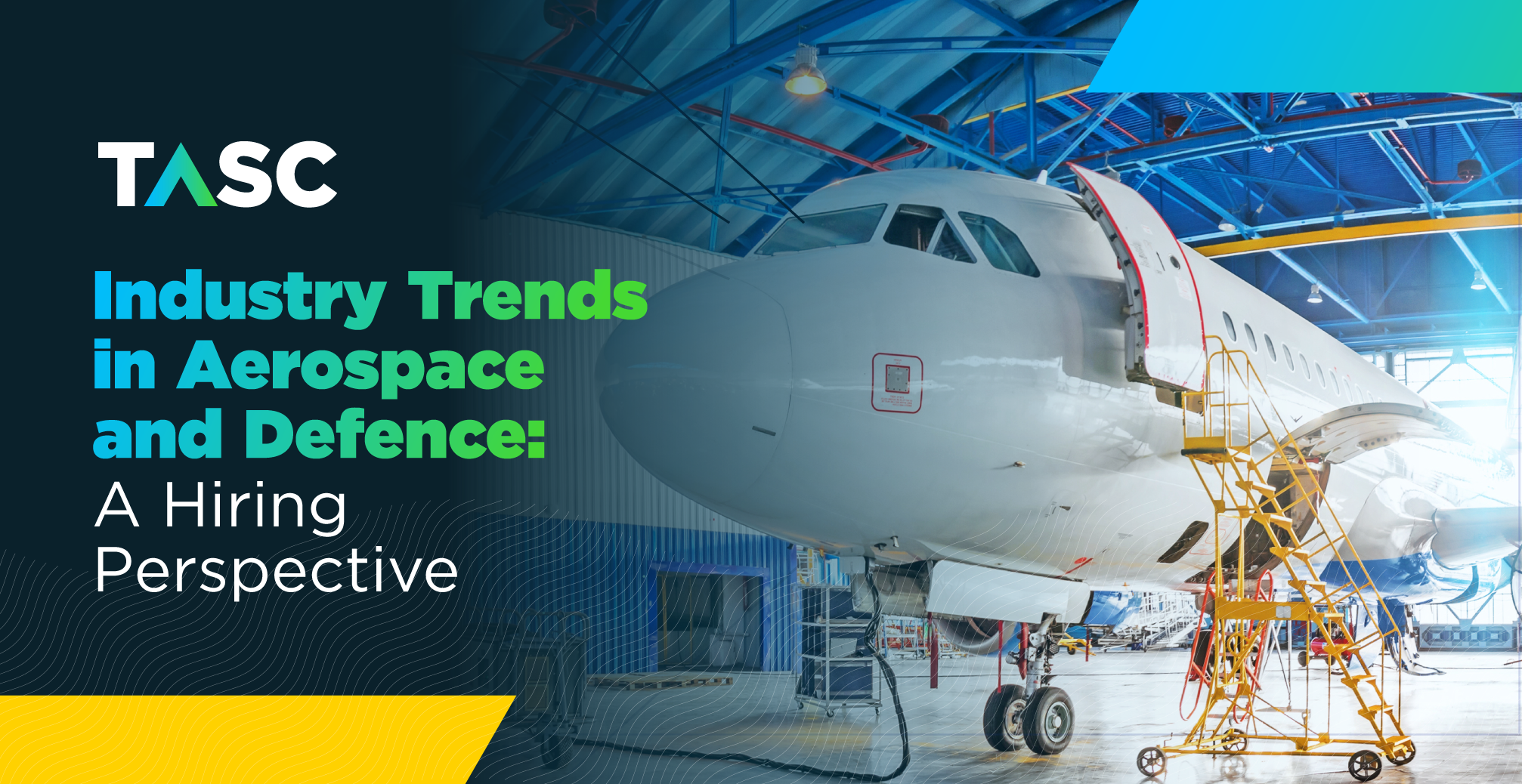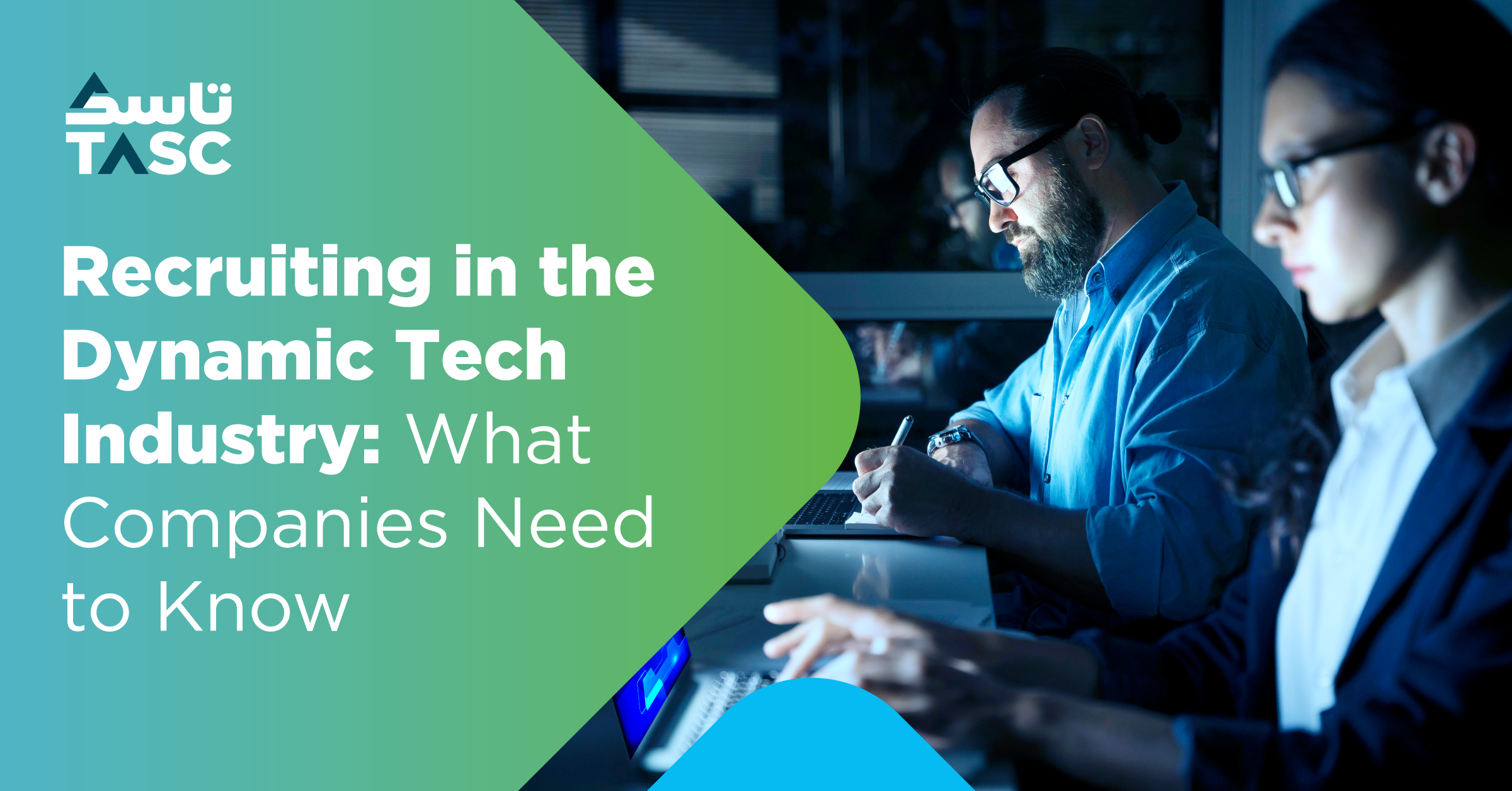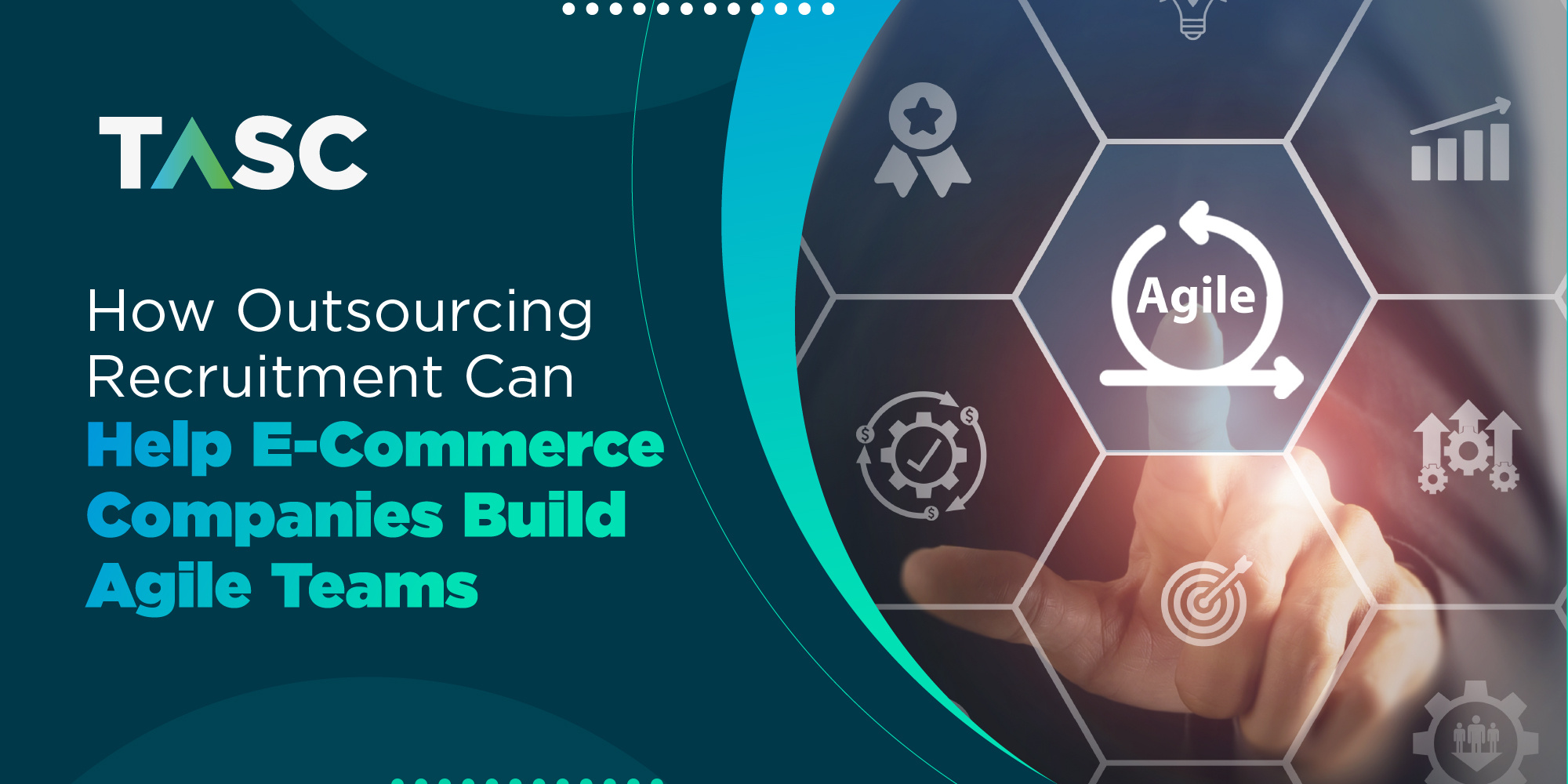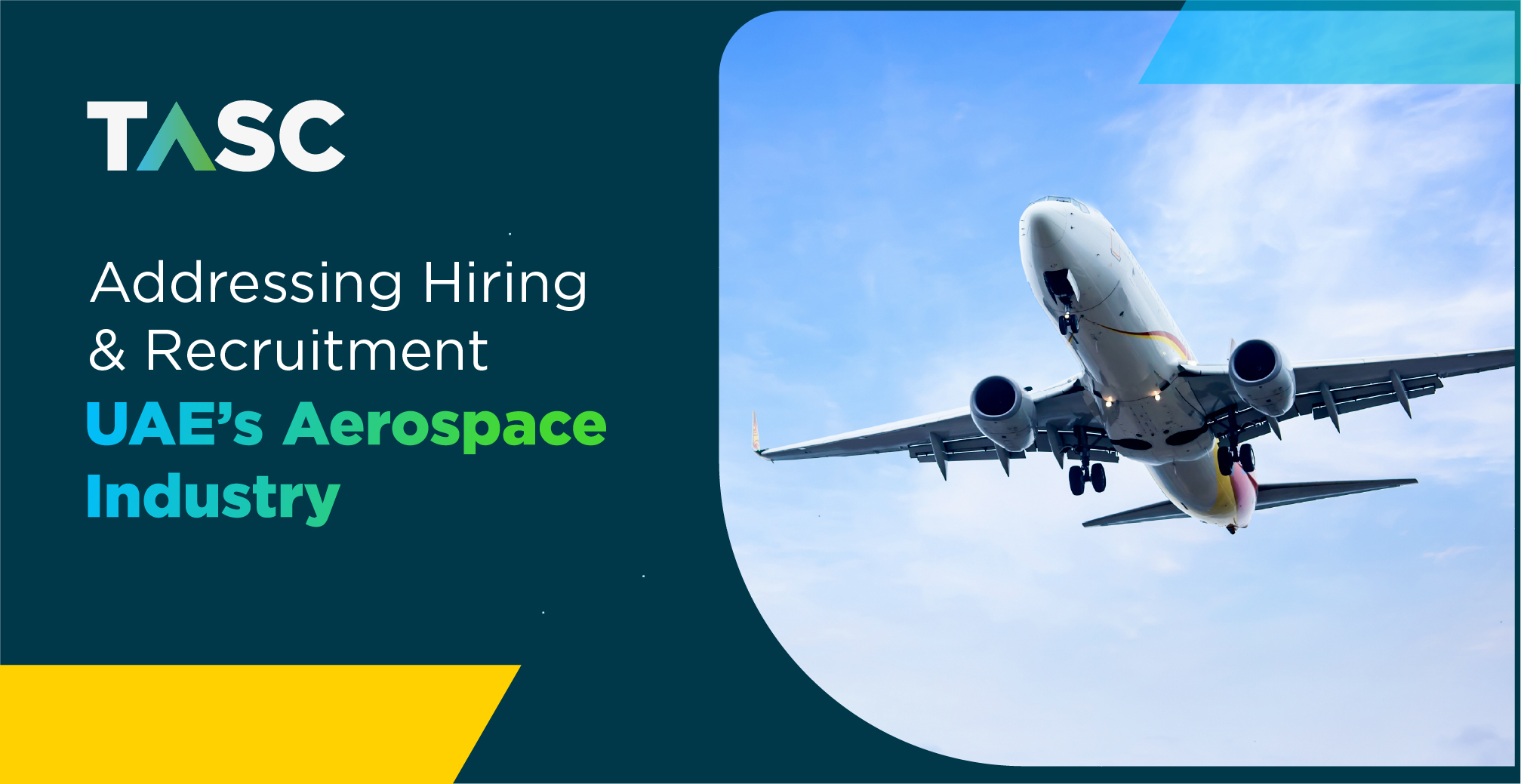Aerospace & Defence Hiring Trends: Industry Insights
The defence and aerospace industry is set to undergo significant changes in 2024, driven by a rapidly changing global environment. Companies in this field must keep up with new technologies, stay efficient, and maintain military strength in a world where industries are becoming more interconnected.
Sustainability is also becoming a major focus, with an increasing awareness of its importance across the industry. This push for sustainability, along with the need to stay ahead in technology and operations, is also known to shape several key trends that will define the industry’s future.
These changes in the market will greatly influence defence and aerospace recruitment, impacting the skills and expertise that companies will be looking for.
Emerging Trends in the Aerospace and Defence Sector
Let’s take a quick look at some of the emerging trends that are expected to drive the industry in the next couple of years –
Innovations Technology and Autonomy
One major trend is the increased use of military drones and unmanned aerial vehicles (UAVs) for surveillance. These are being paired with advancements in artificial intelligence (AI) and machine learning, which are boosting the capabilities of aircraft in impressive ways.
Space exploration is also gaining momentum, with a growing focus on developing reusable rockets and spacecraft. It is part of a broader push to make space travel more sustainable and cost-effective.
Similarly, cybersecurity has become a top priority as well, with heightened efforts to protect both military and commercial aircraft from digital threats. As technology becomes more integrated into aviation, safeguarding these systems is more critical than ever.
Environmental concerns are driving innovation, too, particularly in the development of fuel-efficient aircraft with lower emissions. This reflects the industry's commitment to reducing its environmental impact while maintaining performance.
Finally, there's a surge in the use of 3D printing within aerospace manufacturing, allowing for more efficient production processes. Additionally, the development of hypersonic weapons is pushing the boundaries of what’s possible in defence technology.
Focus on Eco-Friendly Practices
Stakeholders are putting more pressure on companies to adopt sustainable business practices, which is driving efforts to create cleaner manufacturing processes, reduce waste, and leverage technologies like 3D printing.
Digital twin technology is on the rise, along with a growing demand for quieter, more energy-efficient systems that produce fewer emissions.
The industry is also seeing a shift toward hybrid and electric propulsion systems in both aircraft and ground vehicles, as companies strive to meet increasingly strict environmental goals.
In addition, there’s been continuous progress in developing reusable rockets and other sustainable technologies, which are becoming central to the industry's future.
As these sustainability initiatives gain momentum, aerospace and defence companies will start actively looking for defence staffing services that can source them executives with expertise in green energy and sustainable manufacturing to lead the way.
Mitigating Challenges in Supply Chain
One of the main priorities is strengthening supply chain security and resilience to better handle the risks and disruptions. The need to build a more robust supply chain has never been more pressing.
The supply chain isn’t free from vulnerabilities, which is why there is a surge in demand for skilled supply chain professionals who can navigate these complexities. Companies are actively seeking experts who can help safeguard against future disruptions.
Additionally, the industry is implementing more effective supply chain strategies, drawing on lessons learned from other sectors. These strategies are crucial for adapting to the new realities and ensuring long-term stability and efficiency.
Transitions in the Workforce
To address talent shortages and skill gaps, companies are developing innovative working models that can attract and retain the specialized talent the industry needs.
As remote work becomes more common, the industry faces the challenge of balancing its unique requirements with national security concerns. It has led to a careful consideration of how remote work can be effectively integrated without compromising sensitive operations.
Technological integration is also playing a key role, with advancements enabling more seamless digital experiences, remote work capabilities, and decentralized decision-making. These tools are essential for adapting to the modern workforce's demands.
Additionally, there is a growing focus on diversity and inclusion within the workforce. Alongside this, there is an increasing recognition of the importance of evolving soft skills, which are crucial for effective leadership in such a dynamic and fast-paced sector.
What are the Talent Implications?
Greater complexity and risk demand advanced leadership skills.
Defence staffing in Dubai is evolving, and there is a significant demand for executives required to demonstrate a set of critical competencies. Key among these are strong problem-solving abilities, teamwork, and adaptability to emerging technologies and industry changes. Leaders who can navigate this dynamic environment are highly valued.
Executives are also expected to blend leadership with strategic thinking, financial acumen, and deep industry knowledge. Such a combination is essential for making informed decisions and steering organizations through challenging times.
Effective communication and collaboration have become vital as well, particularly with diverse stakeholders such as employees, shareholders, and government officials. The ability to convey complex ideas clearly and build consensus is crucial.
In a world increasingly shaped by geopolitical and technological shifts, leaders must have the capacity to pivot and grow their businesses accordingly. They need to be agile, responsive, and forward-thinking.
Additionally, experience in risk management, sustainability, and compliance is becoming increasingly important. Executives must be able to address these new demands and communicate their importance to investors and other key stakeholders.
Evolving Roles Demand Specialized Knowledge in Advanced Technologies.
Leaders now need to be adept at managing complex, interconnected systems that involve AI, software, computer networks, and data. It requires a deep understanding of how these technologies integrate and function together.
There is also a growing need for engineers and technicians who can design, test, and maintain these sophisticated systems. Their expertise is crucial for ensuring that these technologies operate effectively and safely.
Executives must be well-versed in the regulations and risks associated with advanced technologies. Understanding these aspects is essential for making informed decisions and navigating the industry's evolving landscape.
Managing today’s workforce requires greater creativity and flexibility.
Such a shift is driven by the need to adapt to new workforce dynamics and prioritize diversity, equity, and inclusion (DEI). As a result, companies are exploring innovative approaches to talent management.
One key strategy is the adoption of technology solutions that facilitate flexible work arrangements and remote collaboration. These tools enable employees to work efficiently from various locations, supporting a more adaptable and productive workforce.
Leadership is also evolving, with a greater focus on developing soft skills such as compassion, empathy, and creativity. These qualities are essential for effective leadership in today's diverse work environment, helping to build stronger, more cohesive teams.
Traditional career paths and worker classifications are being reevaluated to promote greater innovation and inclusion. By breaking away from conventional structures, organizations can better support the unique needs and aspirations of their employees.
Preparing for the Future of Aerospace and Defence Hiring
The defence and aerospace industry is on the brink of significant transformation, driven by advancements in green energy, cutting-edge technology, and the need for resilient supply chain management. As these changes reshape the sector, the demand for skilled workers and visionary leaders has never been more critical.
At TASC Outsourcing, we understand the unique challenges of aerospace and defence recruitment. Our expertise in sourcing top-tier talent ensures that your organization is equipped to navigate this evolving landscape with confidence. Whether you need specialists in advanced technologies, sustainability, or leadership, TASC is here to support your hiring strategy.
Don't let the future catch you unprepared—reach out to us today to discuss how we can help elevate your recruitment process and secure the talent needed to drive your business forward.





